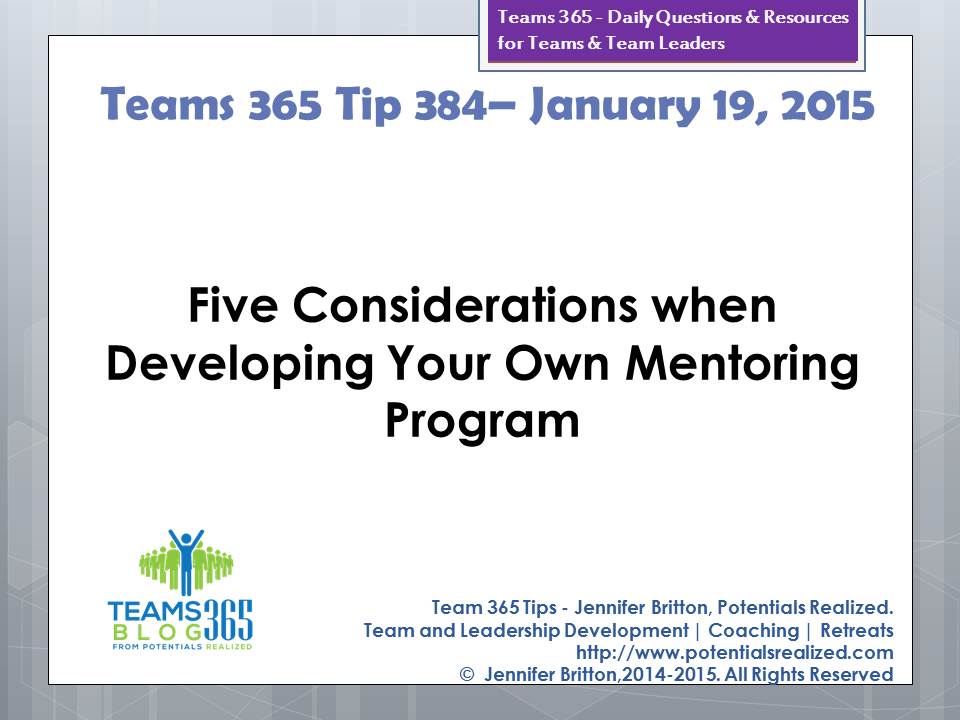Mentoring programs are a low cost development option to support succession planning, career development and leadership development. Today’s post explores five considerations when thinking about introducing a mentoring program into your organization.
1. Purpose - What's the purpose of the mentoring program? Is it to grow leaders, to expand people’s understanding of an organization, an industry? Is the program geared to support proteges in developing specific skills?
2. Provide training to mentors and mentees/proteges - A training program before kickoff can pay off in dividends. Whether it’s a joint session for both mentors and mentees at the kickoff, with separate breakouts to address the needs of mentors and mentees, or separate sessions held for both, training sets a solid foundation. Topic areas which can be important to focus in on are the roles and responsibilities of mentors and proteges, background on the program and why it exists, and expectations (how regularly people are expected to meet and for how long)
3. Provide guidelines on program expectations such as how frequently should people be meeting, for how long, potential topic areas, duration of the mentoring process etc.
4. Provide resources which people can opt to use if interested. These might include:
- Mentoring Logs to capture conversations, learning and next steps.
- Worksheets mentors and mentees might want to include in their work
- Goal Trackers for mentees/proteges to keep track of their learning
5. Create opportunities to connect throughout the year to bring pairings together. This might include special speakers on industry or topics related to the mentoring or, group calls focusing on best practices etc.
Plus a sixth I needed to mention:
Make sure that you have someone to coordinate all the players. Successful mentoring programs involve a wide range of players including internal committee responsible for making decisions, external partners who might be supporting you with the program training and support. A corporate sponsor also helps to ensure that mentoring conversations are prioritized even when things get busy!
If you have developed a mentoring program before, what are your recommendations?
Have a great week,
Jennifer
Jennifer Britton, MES, CPT, PCC
Potentials Realized: Coaching | Teamwork | Leadership
Supporting Team Leaders to do their best work, one conversation at a time
Author of From One to Many: Best Practices for Team and Group Coaching(Jossey-Bass, 2013)
Authorized Partner of Everything DiSC and the Five Behaviors of a Cohesive Team

 RSS Feed
RSS Feed





